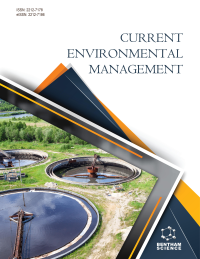-
s Impact of the Precoagulation Performance of the Ultrafiltration Process in the Tertiary Treatment for Recycling of Urban Sewage
- Source: Current Environmental Management (Discontinued), Volume 6, Issue 3, Dec 2019, p. 188 - 195
-
- 01 Dec 2019
Abstract
Background: Ultrafiltration membrane processes have become an established technology in the treatment and reuse of secondary effluents. Nevertheless, membrane fouling arises as a major obstacle in the efficient operation of these systems. Aim/Objective: This study evaluates the factors affecting pretreatment conditions for combination ultrafiltration membrane processes for reuse of secondary effluent from the sewage treatment plant. The objective of this work is to study the precoagulation effect on the removal of organic matter from secondary effluent from the wastewater treatment plant Reghaïa (Algiers) and for fouling of the membranes ultrafiltration. Methods: A comparison was made between two coagulant FeCl3 and Fe2(SO4)3 using two processing systems, Coagulation (with sedimentation) / Ultrafiltration and Coagulation (without sedimentation) / Ultrafiltration. The optimum conditions for coagulation were determined by the analysis UV254 and turbidity. Result: The results showed that there's a better reduction of the decrease of permeate flux (Jv) in the coagulation system (without sedimentation)/Ultrafiltration for both coagulants because of trapping of organic molecules responsible for fouling of the membrane inside the porous flocs formed in the coagulation.


